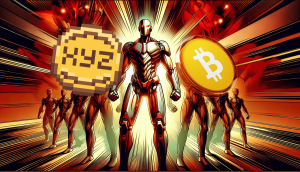A recent survey conducted by Deloitte produced a decidedly unexpected result: three out of four respondents believe cryptocurrencies will be an alternative to traditional fiat currencies.
Deloitte’s survey
Deloitte’s 2021 Global Blockchain Survey is a study conducted between March and April among 1,280 “senior executives” in 10 countries (Brazil, China, Germany, Hong Kong, Japan, Singapore, South Africa, UAE, UK, and the US) with basic knowledge of blockchain and digital assets.
Seventy-six percent of them responded that they believe digital assets will be a viable alternative, or proper replacements, for traditional fiat currencies in the next 5 to 10 years.
However, it is unclear whether they considered CBDCs included in these “digital assets” or not, in part because not all respondents were true digital asset experts.
In fact, central bank digital currencies (CBDC) are nothing more than natively digital versions of traditional fiat currencies, which are natively analog but already widely used in digital format.
Therefore, from a financial and social point of view, CBDCs should be considered neither digital assets nor cryptocurrencies but only new versions of traditional fiat currencies. In short, they have very few differences from traditional fiat currencies and share with them the same value, the same monetary policies, and the same inflationary nature.
Generally, however, digital assets do not mean digital versions of traditional assets, but new assets, utterly different from those of the past, natively digital, and based on distributed or, better, decentralized registers. Therefore, CBDCs should not be included in the list of digital assets.
Cryptocurrencies vs. fiat currencies
Deloitte’s survey seems to suggest two things.
The first is that, even among those who claim to have a basic knowledge of new digital assets, there is probably some confusion as to what are the peculiar characteristics that an asset must have to be considered natively digital and innovative enough to be included in the new asset class of digital assets.
The second is that digital assets are raising a lot of expectations.
In this regard, Deloitte states:
“Digital assets are disrupting the entire financial market, and every organization and industry that is a customer of the financial services industry (FSI). Financial instruments, from money to stocks, and the infrastructure for any type of transaction, is changing—for the better.”
He further adds that the survey uncovered a “seismic shift” taking place in the financial services industry, resulting precisely from the evolution of blockchain-based digital assets.
This hypothesis also seems to be shared by many ordinary people who are entering the world of blockchain. However, not everyone has yet realized that it is probably the financial sector benefiting the most from this innovation.
On the other hand, even Deloitte’s survey results underline the strategic and fundamental importance of the blockchain revolution in the financial sector, where the decentralization revolution has not only started but is also already concretely changing things profoundly and irreversibly. At this point, that 76% of respondents who consider digital assets a real alternative to traditional fiat currencies take on less surprising meaning than it might appear to superficial analysis.
The post Deloitte survey: for 76% cryptocurrencies are an alternative to fiat currencies appeared first on The Cryptonomist.





















